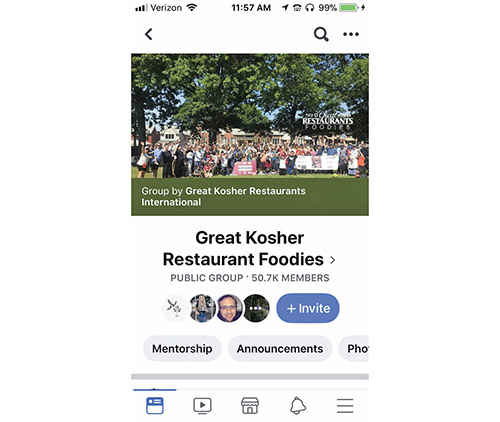

For kashrut-observant Jews worldwide, Facebook’s numerous “foodie” groups can be a blessing or, in the worst cases, a lesson in the art of being petty. These Facebook groups, some open to all Facebook members and others by approval only, cover everything from reliable hechshers and food recommendations to “discussion” posts about whether the restaurant or customer was at fault in a given situation.
Sometimes these posts are helpful. When looking for restaurant recommendations while traveling, for example, all it takes is a quick “kosher food in _____?” and one is sent as many kosher food options as the city, state or country locals can come up with. Other times, people will inform the group about a new kosher item in stores, that a specific product has been discontinued or that it is no longer kosher. On the Kosher Trader Joe’s group, for example, people share photos of new products, accompanied by suggestions for how to prepare them.
Like on any social media platform, there are sometimes negative exchanges. Arguments about hechshers and kashrut are somewhat understandable, since halacha has many intricacies. The Facebook groups that focus on grocery stores (rather than restaurants) specifically all have different rules regarding hechsher-related discussions.
On the Trader Joe’s group, rules are posted at the top of the Facebook page: Only asking what hechsher a symbol represents, or who certifies it, is allowed, not whether it is “reliable.” In contrast, the Costco Facebook group expressly says that it only promotes products with hechshers approved by the Chicago Rabbinical Council.
As with other social media platforms, trolling is a common occurrence, and people say things they might not say in a face-to-face conversation. In one group, someone posted a photo of Moscato wine that was on sale. Some people thanked the original poster for the information or commented what most people know: that Moscato is a sweet wine with a low alcohol content. But one particular user commented: “Yucky! This is girly wine which real men should never drink…” In response to another user, who said it’s a favorite in their house, the user responded: “I will never accept an invitation to your house unless you have single malt [whiskey] to compensate for your horrific wine selection.”
These Facebook groups are helpful to many, but getting overly caught up in someone’s rude comments can lead to frustration. Up until 15 or so years ago, kashrut-observant Jews might never have thought a platform focused on kosher food possible. When users stick to the facts, respect others’ tastes and make constructive comments as opposed to demeaning ones, these accounts become the valuable resource they were intended to be.
By Ariella Weiss
Ariella Weiss is a senior at the Frisch School and is currently interning at The Jewish Link.








